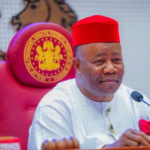page 23 int
New tariff rise, power outage and matters arising
By Simon Echewofun Sunday
As industry operators plan a review in the present electricity tariff, analysts are positing that it may be far – fetched from the solutions needed to having a robust power sector.
The Nigerian electricity market is said to be going through a difficult phase with roughly N330million being lost in daily due to poor networks and the slow investment culture. An expert this month has put the monthly loss to about N10billion market shortfall and a N120billion annual cumulative.
Since the privatization and concession of key power utilities and subsequent handover to private investors on November 1, 2013, electricity consumers have expected a dramatic turnaround causing the bulbs to blink over 20 hours daily. But the handlers of both the generation and distribution value chain continuously said it does not work like magic as it requires time and huge investments in the eroded networks.
It came to a point when all that matters to public and private officials was the megawatts (mw) even the availability had barely translated to improved power supply. While power generation capacity had barely increased beyond the 4,500mw the previous administration left it, the Daily Trust tariff observed that the tariff has traditionally been rising every six months.
The Nigerian Electricity Regulatory Commission (NERC) regulates the operations of the power firms and then supervises the review of tariffs in what seems to be a biannual ritual. It said certain factors are considered in the review including the prevailing exchange rate, inflation rate, the cost of gas-to-power supply and available generation output.
While power tariff significantly increased for industrial and commercial electricity customers in January 2015, it was static for the residential customers who form over 50 per cent of power users in Nigeria. NERC said it reached a conclusion to suspend it while mandating power firms to improve power supply reasonably in the first six of months of this year when the residential customers will start paying the new tariff.
With the activation of the tariff, some customers who spoke with the Daily Trust, in Abuja weekend, are mostly those who have no meters and are on estimated billing. They said they had noticed a rising trend in their monthly electricity bills since August. One Audu Okopi who resides in Nyanya, a suburb in the federal capital said “My bill for a three phase used to be an estimated N2800 – N3000, it has risen to N3,800 and N4,200 with no commensurate increase in daily power supply.”
A power analyst and an Infrastructure Investment Advisor, Olajuwon Olaleye in a reactionto the incessant cases of rising power tariff said an increase in tariff, as being propounded, will only increase inflation and reduce the purchasing power of domestic or residential consumers, and increase the cost of doing business for the commercial or industrial consumers.
In the same token, he said an attempt to ramp up the electricity generation capacity without first minimizing or eliminating the Aggregated Transmission, Collection and Commercial (ATC&C) Losses will only lead to chaotic aggravation of the monthly revenue shortfall in the Nigerian electricity market.
Olaleye who is the CEO of KAIROS TechnoSolutions Limited said in the recent months, NERC has made spirited efforts to tele-guide the process of tariff review by the Distribution Companies (Discos). NERC has been supporting and encouraging the Discos to engage the consumer groups in their respective territories through public consultations.
He noted that but for the series of court injunctions, National Assembly objection, the civil society and media rejection of the process, it was apparent that the tariff increase would have flown shortly.
“It is at the end of the on-going review exercise to be concluded in a few weeks’ time that the figures of increase or decrease would be clearer to anyone,” he quoted NERC Chariman, Dr. Sam Amadi as saying.
The analyst also reacted to the new order that empowers customers not to pay for estimated bills if the meters they paid for are not delivered within sixty days. He said: “This new regulatory order is belated as the Discos have persistently overcharged unmetered consumers for 24 months (since November 1, 2013), yet there has been no commensurate increase in the remittance made to the Market Operator to settle the Market Participants over the same period.
“This is what resulted in the Central Bank of Nigeria’s bailout in April 2015 through the N213billion Nigerian Electricity Supply Industry (NESI) Intervention Facility.”
Fielding questions on what becomes of the Discos who continues to flaunt the CAPMI rules of metering subscribers in 45 days Olaleye asked: “Are there no consequences or penalties for flouting guidelines and regulatory orders?
The consequences of this he said is that “no new foreign investor will venture into the Nigerian electricity market if the early 17 entrants are unable to show reasonable Returns on their Investments.” Hence, he advised that it is imperative that we get our Energy Economics right for a successful commercialized electricity market in Nigeria!
To him, the country has a population of 170million and an average age of 25-40 years who are in the working class, but have a 30 per cent or less electricity penetration, even with ample natural resources, especially gas and the sunlight for renewable energy.
 Join Daily Trust WhatsApp Community For Quick Access To News and Happenings Around You.
Join Daily Trust WhatsApp Community For Quick Access To News and Happenings Around You.



